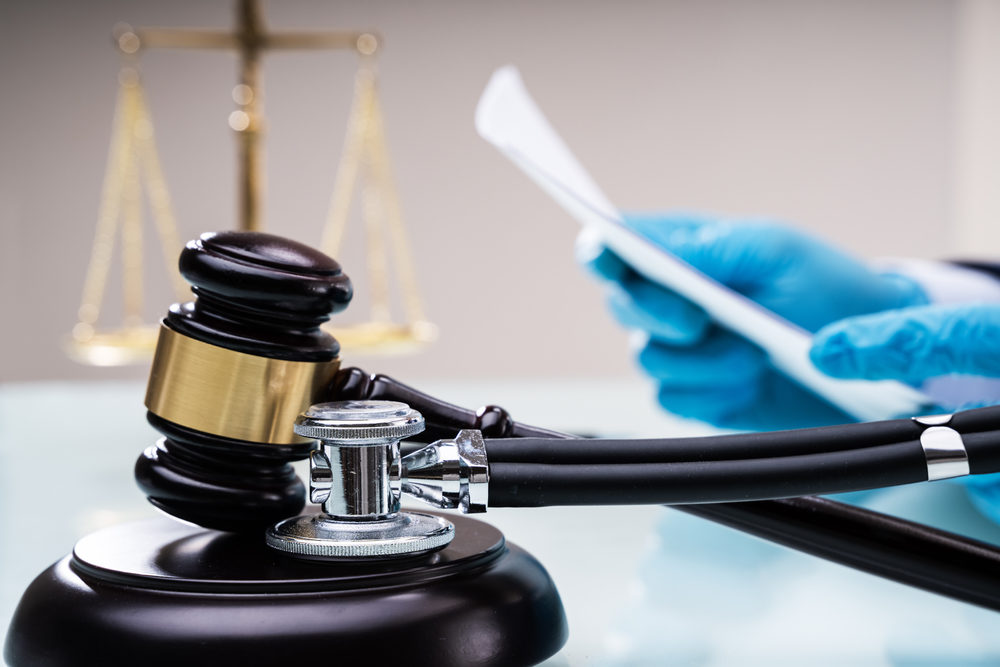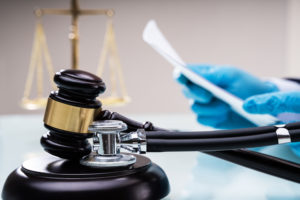
When you visit a healthcare provider, you’re putting trust in them to figure out what’s wrong and give you the right treatment. Of course, physicians can make mistakes, just like the rest of us, but when is that mistake an honest one that could have happened to anyone – and when does it become negligence?
More than 100,000 people suffer permanent injury or death every year in the U.S. because of a medical diagnosis that is incorrect, delayed or missing vital information – and an astonishing 99 percent of doctors will face at least one lawsuit by age 65. That doesn’t mean that all of them are guilty of medical malpractice, but it does demonstrate how blurry the line between a bad call and negligence can be.
New Jersey is the nation’s fourth leading state for medical malpractice payouts, awarding approximately $2.48 billion from 2009-2018.
Medical malpractice is the failure to live up to the standard of care expected of healthcare professionals that results in injury. It can be very difficult to determine whether your injury or negative experience as a patient was malpractice or simply an unfortunate outcome – and the standard of proof in court is extremely high.
Most negligent medical errors fall into one of the following categories:
- Improper diagnosis: If you’re told that you have cancer, your doctor will likely treat you with chemotherapy, radiation and surgery. But if you later discover that your tumor turned out to be completely benign, that doctor’s negligence has impacted your physical, mental and financial health.
- Failure to Diagnose: A bad headache can indicate almost anything, but if a doctor assesses yours and sends you home with migraine medication, and you later suffer a brain aneurysm and die, that could be a case of medical malpractice. An improper diagnosis can happen without turning into malpractice, but a failure to diagnose means the doctor was so far off the mark that it led to a severe or fatal injury.
- Medication errors: Patients completely trust their doctors and pharmacists to prescribe them the right medication, but thousands die from taking the wrong medication every year. Reasons for this include illegible handwriting, dosage errors, and the similarities between medication names (such as hydroxyzine – an antihistamine – and hydralazine – for high blood pressure). Simple mistakes here can lead to catastrophic consequences for patients.
- Differential diagnosis: This is the process by which a physician rules out every possible cause of your symptoms before settling on a final diagnosis. If your physician isn’t thorough enough, you could be diagnosed with a routine head cold but end up in the hospital with COVID-19, fighting for your life.
- Mistakes during surgery: Surgeons train for thousands of hours on every possible procedure, but perfection is impossible, and about 4,000 surgeries every year will have mistakes. These can include operating on the wrong part of your body, performing the wrong surgery entirely, or not giving enough anesthesia to keep you under for the duration of the procedure.
Hiring a New Jersey Medical Malpractice Attorney
Is your injury severe enough to warrant a medical malpractice lawsuit? It probably is if you can prove three things – that you had an established relationship with the doctor, that the doctor’s actions were truly negligent, and that those actions resulted in harm that would not have happened with a competent provider of the same specialty. If you are unsure if medical malpractice played a part in your injury, a medical malpractice attorney can review your case and help you determine the best legal options.
In many states, including New Jersey, a medical malpractice plaintiff must acquire a signed affidavit from that provider stating your care did not meet the medical standard – unless the negligence was grossly obvious. Because many doctors are sued for not satisfying their patients rather than committing actual malpractice, it is purposely hard to prove.
If you don’t suffer physical harm, it gets much more difficult. Financial losses, such as wages and unnecessary medical bills, may be fairly straightforward, but emotional and mental harm will probably require expert testimony with no guarantee of proven negligence.
The bottom line is that if you believe your healthcare provider truly acted in negligence, you must contact an experienced medical malpractice attorney before moving forward. Doctors and hospitals have powerful legal teams on their side. Never attempt to sue someone for medical malpractice on your own.
Medical Malpractice Cases in the News
These recent cases in the headlines demonstrate how negligent physicians can be – and how much compensation can be gained with the help of competent legal representation.
A star Seton Hall basketball player named Myles Powell injured his ankle during a game in 2019. After examining the injury, his sports medicine doctor and coach both agreed he was fine to continue playing, but as he did so, the pain got progressively worse, spreading to his knee. Powell went back to the doctor, who gave him injections so he could keep “performing for the university.”
Powell kept playing and finished the season on top, practically a shoo-in for the NBA draft. But league scouts had suspicions that he had been playing on an untreated injury and did not select him for any team. He ended up playing in the minor G League, and his dreams of becoming an NBA professional were dead. His medical malpractice case is ongoing.
In 2003, a teenage girl named Jesica Santillan received a new heart and two lungs in an operation at Duke University Hospital, long considered one of the top hospitals in the U.S. Yet, its chief of pediatric surgery at the time, Dr. James Jaggers, made a horrible mistake when he neglected to realize that the organs given to Jesica were not her blood type.
The antibodies in the donated organs attacked Jesica’s organs, and she went into a coma. Two weeks later, a second transplant using correctly matched organs was attempted, but it was already too late. Jesica had suffered irreversible brain damage and was taken off life support. She was just 17 years old.
The organs had been procured by the United Network for Organ Sharing (UNOS), which exists strictly to find matching organs for patients in need. But when Dr. Jaggers heard there were organs for Jesica, he sent for them without bothering to ask whether the blood types matched. He assumed UNOS would never give him mismatched organs.
In the end, more than a dozen people had been responsible for cross-checking the blood types, but no one had done so.
In November 2019, an Illinois jury awarded the family of a 5-year-old boy a record $101 million after the child’s brain was severely injured at birth.
During the mother’s labor, hospital staff neglected to watch her fetal heart monitor, which clearly showed the baby wasn’t moving as much as he should be. It wasn’t until five hours later that they realized something was wrong.
As a result of their negligence, the boy was born with severe brain damage and will require constant care for the rest of his life. A pediatric expert testified that the baby would not have been injured if someone had paid attention to the fetal monitor and delivered the baby by emergency C-section.
Don’t Wait to Contact a Medical Malpractice Attorney
With few exceptions, New Jersey law only allows you to file for medical malpractice within two years of the incident. It takes a lot of courage and determination to decide to fight a physician or hospital, and you don’t have to do it alone. If you believe that you or a loved one has suffered harm because of a healthcare provider’s negligence, don’t wait until it’s too late to seek the justice you deserve.
The experienced medical malpractice lawyers at D’Arcy Johnson Day have the intricate knowledge necessary to analyze your medical records and figure out whether you have a case. Contact us online or call toll-free at (866) 327-2952 for a free consultation.

As a partner with D'Arcy Johnson Day, Andrew D'Arcy has been involved in some of the nation’s most high-profile cases and investigations. His practice includes serious automobile accidents, medical malpractice, wrongful death and product defect cases. Andrew has been personally responsible for numerous multi-million dollar settlements and verdicts on behalf of his clients. He has been recognized by his peers as an "AV" rated attorney, the highest possible rating given by Martindale-Hubbell publication. Andrew has been named a "Super Lawyer" by New Jersey Monthly magazine each year consistently since 2013.














Comments for this article are closed.